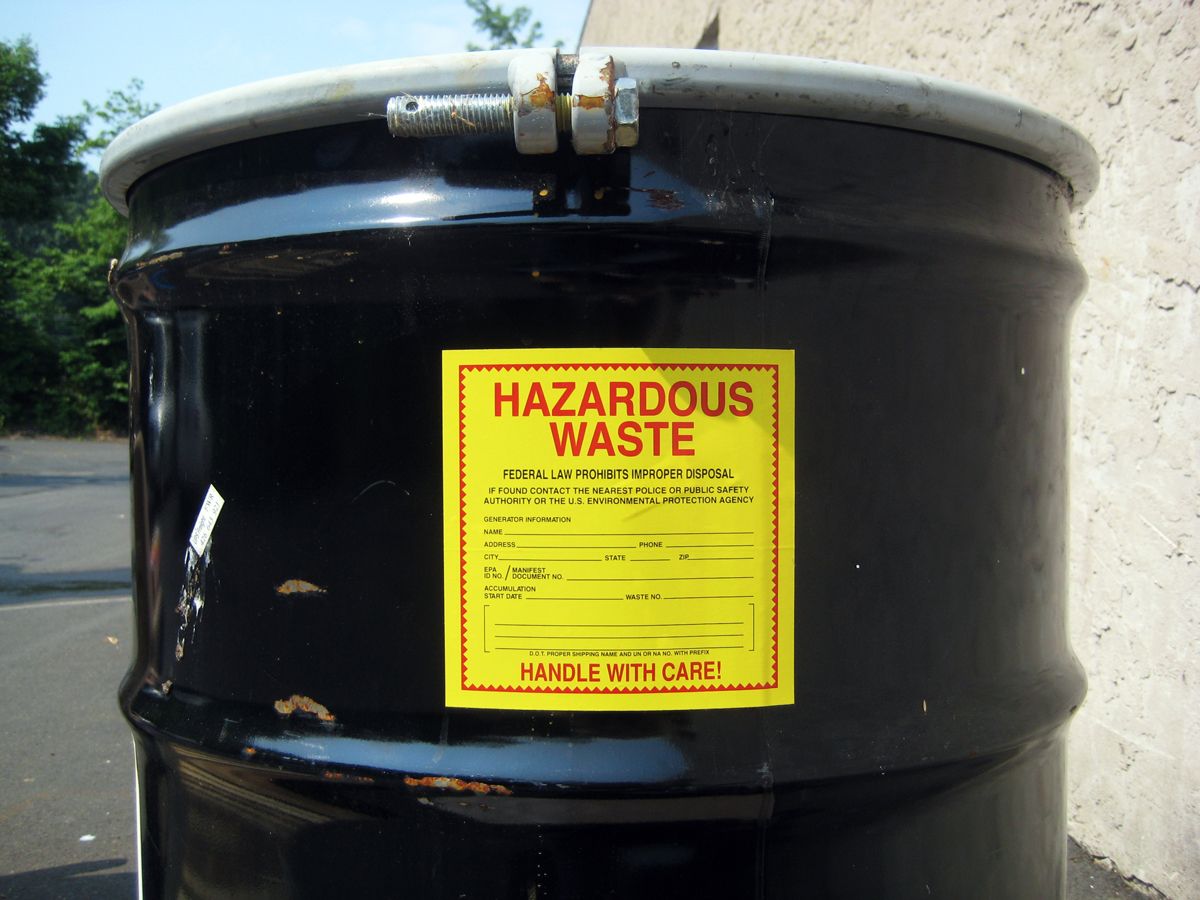
The Resource Conservation and Recovery Act (RCRA) of 1976 was set forth by the United States Environmental Protection Agency (EPA) to govern hazardous wastes from cradle to grave. The Act covers the management of, transportation, storage and disposal of hazardous wastes. In addition to RCRA compliance, state and local regulations can make hazardous waste management regulations even more stringent. Companies that generate hazardous waste must be well versed in the regulations or risk large fines given by the EPA. Ultimately, we know that hazardous waste management isn’t the most important part of your day. The list below points out the most common RCRA compliance violations to prevent you from risking monetary loss.
1. Open Waste Containers
Waste containers should always be kept securely closed. The only exception to this rule is when waste is actively being added or removed from the container.
2. No Inspection Logs
Hazardous waste storage areas are often the most neglected areas of a facility. However, the EPA states that storage areas must be inspected at least once weekly to ensure all materials are stored securely and safely. Though the EPA says inspection once a week is required, it is best practice to have multiple trained personnel inspect the area once weekly to ensure storage areas are properly cared for.
3. Inadequate Employee Training
All employees who work with hazardous waste, whether you are a small quantity generator or large quantity generator, are required to have at least basic training. The training must include how to properly manage hazardous waste and the facility’s emergency procedures.
4. Record Keeping
Hazardous waste generators are required to keep various records under EPA regulations. Documents that must be kept on file include hazardous waste manifests, biennial reports, waste testing reports, and exemption reports.
5. Improper Labeling
EPA regulations state that various information must be on the outside of a hazardous waste container. The words “hazardous waste”, the accumulation start date, and a description of the hazards in the container must be clearly affixed to a hazardous waste receptacle. It is important to remember that many states have even more stringent labeling regulations than the EPA states.
Contact Maine Labpack, Inc.
At Maine Labpack, we know that the slew of regulations put forth by the EPA may be overwhelming. However, our chemists are experts in EPA compliance and are here to help you understand and ensure you are always within RCRA compliance. Contact us today to have your questions about RCRA compliance violations answered!
